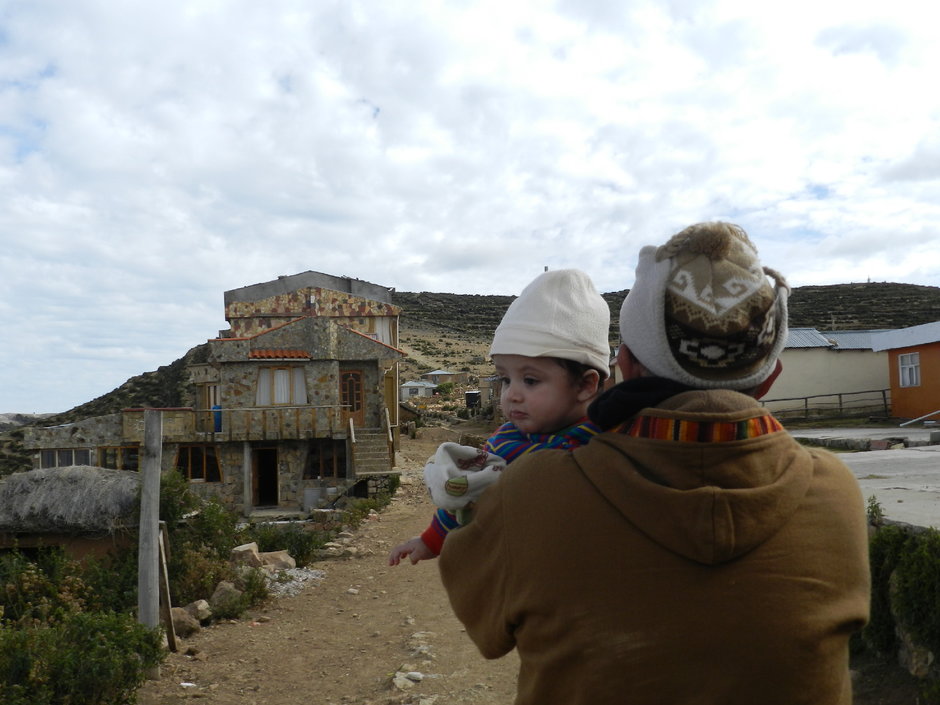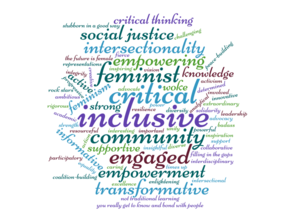- Prices/Payment
- Standard Service US$199.00
- VIP/Rush Service US$299.00
- Statement of Purpose Help
- Dr Robert Edinger, Personal Statement of Purpose Specialist
- Editing/Writing Service
- Mission
- Guarantee/Privacy Policy
- Client Testimony
- Autobiographical
- Disadvantaged Status
- Diversity
- KSA
- Undergrad
- Letters of Recommendation
- Resume /CV
- Interview!
Samples of My Work for Admission to Graduate School in Sociology
Human Suffering and Humanitarian Emergencies.
Search by Degree, Field, or Country of Origin
Media's Reporting can be Detrimental to Humanitarian Crises Around the World
Statements of Excellence in Sociology

Sample 1st Paragraph, PHD Degree in Sociology, Kuwait
 I am a student of sociology from Kuwait with an undergraduate degree from my home country and an MA Degree in Sociology from XXXX University London (UK) 2008. My long term goal is to teach sociology at Kuwait University, a position for which I need to earn the PHD Degree. My first choice for continuing my studies on the doctoral level is XXXX State University because I very much admire your focus on the family as well as your comprehensive treatment of methodology.
I am a student of sociology from Kuwait with an undergraduate degree from my home country and an MA Degree in Sociology from XXXX University London (UK) 2008. My long term goal is to teach sociology at Kuwait University, a position for which I need to earn the PHD Degree. My first choice for continuing my studies on the doctoral level is XXXX State University because I very much admire your focus on the family as well as your comprehensive treatment of methodology.

I help as many people as I have the opportunity to help in the area of Sociology because of my sheer love or this field of study. Raised by parents who put little value on education, I began college late, at the age of 22. My first semester, I was clueless but registered for classes that sounded interesting, which included a Sociology class. That semester, my world lit up like a pinball machine, especially because I learned to think sociologically. I would go on to study mostly Religious Studies and Philosophy, but Sociology would always be with me in the way that I learned to think so long ago; and continue to think until today.
Help with your Personal Statement of Purpose for Graduate School in Sociology.
As our world becomes increasingly interconnected, global sociology becomes ever more important, understanding the nature of our international interactions on a scientific level. On a domestic level, sociology is helpful on a host of fronts as well. It helps us to understand why, for example, our country, the United States, is such a deeply divided nation, culture wars, conflict and tension between social classes, age groups, people of diverse sexual orientations, races, languages, etc. Sociology provides the lens through which we can look at and understand ourselves.
Sociologists must possess a variety of skills to successfully understand that which they study. Graduate students in sociology sociological theory, social psychology, research skills and methods, statistics, and politics. But because there are many specialized areas of sociology, graduate students may also engage in coursework as varied as women's studies, gerontology, and classes dealing with legal issues
Graduate students usually also focus on one specific area of study. This can include not only certain "geographically-bounded communities,” but also crime patterns, maintenance of ethnic and racial diversity, provision of quality social services, homelessness, domestic violence, and demographic trends in metropolitan and non-metropolitan areas, to name a few.
Job opportunities include work in sociological research, teaching at both the secondary and post-secondary levels, and community-based positions, not only schools, but also hospitals and psychological clinics, as well as politics. Other options include sales and marketing, communications, and community development; in fact, the choices are limited only by your imagination and your willingness to explore all your options.
It is very important that you carefully review the style and presentation of your application material for graduate school before submitting it, especially your Personal Statement of Purpose. Seeking the assistance of a professional writer is often a very good idea, especially if English is your second or third language. I would be happy to draft the first paragraph free of charge so that I have the opportunity to demonstrate to you how I can help in this regard. You will only need to pay for my services if you are very impressed with the first paragraph and decide to commission me to draft the entire statement.
I want to help you get accepted to Graduate School in Sociology.
I would be happy to provide you with a highly eloquent Statement that portrays you as someone with enormous potential to contribute to the advance of the field of sociology over the long term. After you fill out my Online Interview Form, I will ask you some specific questions by email if I need any further information. Please also send your resume/CV and or rough draft if you have one.
Issues and Challenges in the Provision of Aid
The greatest challenges for those involved in humanitarian aid and development assistance are to and achieve efficiency, effectiveness, and manage the extremely complex political, economic, and social side effects associated with them. It has become increasingly clear that aid is not a panacea, and, although externally driven, humanitarian aid and development assistance programs inevitably take on roles within the conflict and in the societies in which they operate.
As a sociologist, you get to analyze and take part in improving humanitarian action and the relationships by the various actors involved. How will you make your mark? If further study is necessary at this stage in the journey, or you would like help applying for the job of your dreams, let us know if we can help! Good luck.
Most Recently Edited Samples
- Real Estate Finance Master's Degree, Hong Kong, China
- MS, Chinese, Statistics for Technological Advancement
- MS Construction Mgmt, Indian Applicant
- Graphic Design Master's, Art History Background
- PHD Health Sciences Informatics, Chinese
- PHD Economics, Policy Analysis, Chinese
- PHD Earth Sciences, Petroleum Engineering Nigeria
- Master’s Real Estate Development, Latino, Mexico
- Doctor of Special Education, Autism Spectrum
- Masters Real Estate, Los Angeles, Indian
- MS Real Estate, NYC, Harlem, African-American
- Master’s Statistics, Chinese Woman
- Master’s Global Business Journalism, Korean
- Undergraduate, Physics, Chinese
- Diversity Statement, Grad School, Hong Kong
- PHD Statistics, Biomedical Research, Korean
- PHD Epidemiology LOR, Chinese Doctor
- MS Accountancy, Bookkeeping, Vietnamese
- Certificate Program in Global Studies and IR, Mexican-American
- PHD Agricultural Economics, Bangladeshi
- Latin American Studies PHD, Central American
- LLM Masters, Scientist, Pharmacy Regulation
- MLIS, Women’s Studies Minor, LGBT
- MS Educational Administration California
- MS Computer Science, Software, Food & Drug
Premium Statement Service by Dr. Robert Edinger
With maximum creativity, research as indicated, priority attention, and as many drafts as needed,
Dr Robert Edinger with Son David
drrobertedinger@gmail.com
1-812-675-4937
Sociology and Women's Studies Major Applying to MSW Program, Sample 1st 2 Paragraphs
 The University of XXXX (UXX) is my first choice for graduate school to earn my MSW Degree for a host of reasons ranging from the convenience of your location to the sheer excellence of your program. I was raised mostly in XXXX and I have innumerable, invaluable ties with the community, connections that will help me to excel as a student in your MSW Program and beyond.
The University of XXXX (UXX) is my first choice for graduate school to earn my MSW Degree for a host of reasons ranging from the convenience of your location to the sheer excellence of your program. I was raised mostly in XXXX and I have innumerable, invaluable ties with the community, connections that will help me to excel as a student in your MSW Program and beyond.
Completing my undergraduate studies in Sociology and Women’s Studies enabled me to make the most of my study abroad experience in Tel Aviv, Israel, (January-July 2014), serving as an Intern at the Tel Aviv Sexual Assault Crisis Center. Among other duties, I was assigned the task of reviewing, evaluating, and revising sexual assault prevention programs. This year, May-August 2015, I enjoyed the enormous privilege of serving as a Behavioral Health Specialist with The XXXX Foundation in Scottsdale, AZ, helping youth with substance abuse and mental health issues. These experiences, combined with my leadership role in the Jewish community, have convinced me that I have the heart and soul to do this work.
The Humanitarian Side of Sociology
As protracted internal conflicts have become more common and more deadly, the impact on civilians has increased. Post-Cold War conflicts have caused over five million casualties. Ninety-five percent of them were civilians. In 2001, it was estimated that 35 million people were affected in different ways by conflict internationally.
According to former Secretary-General of the United Nations Kofi Annan, it is increasingly true that "the main aim ... [of conflicts] ... is the destruction not of armies but of civilians and entire ethnic groups."
These disturbing developments have involved extensive humanitarian relief efforts and development assistance to rebuild war-torn countries after the conflict has ended. Development assistance is also a long-term strategy for the prevention of violence. Although they are presented separately here, humanitarian aid and development assistance often overlap and have a lot in common.
What Is Humanitarian Aid?
Conflicts adversely affect civilians both directly, and indirectly, through resulting "complex emergencies" created by protracted conflicts. In the immediate area of conflict, the primary aim is preventing human casualties and ensuring access to the basics for survival: water, sanitation, food, shelter, and medical care. Away from the main fighting, the priority is to help people who have been displaced, prevent the spread of conflict, support relief work, and prepare for rehabilitation.
What Is Development Assistance?
External development assistance, to reconstruct a country's infrastructure, institutions, and economy, is often a key part of the work done in the aftermath of war. This assistance ensures that the country can develop, instead of sliding back into conflict and war. Some of the key requirements include:
- Reconstruction of property and infrastructure to facilitate return of the displaced security, governance, transport of food and supplies, and rebuild the economy.
- Transitioning to normal security conditions: demilitarization, demobilization, reintegration of ex-combatants and an adequate police force.
- A functioning judiciary system to enforce the rule of law.
- Governance and government service provision.
- Democratization, often in the form of a representative government to moderate conflict.
- Economic development and a stable macroeconomic environment, promoting political stability and facilitating a solid financial base for government.
- Local capacity building: once the donors leave, the country needs to function independently of aid and function adequately.
The link between underdevelopment and propensity to conflict makes development assistance important in violence prevention. The structural factors contributing to conflict include political, economic, and social inequalities; extreme poverty; economic stagnation; poor government services; high unemployment and individual (economic) incentives to go to war and fight. Development assistance must attempt to reduce inequalities between groups and reduce economic incentives to fight by controlling illicit trade.
It is probable that the most important principle of development assistance is the use of aid conditionality to promote economic and political practices that strengthen peacebuilding. Donor assistance is often conditional on acceptance of a peace settlement by all sides. Continued commitment to implementing and consolidating peace is also often required.
Coordination and effective leadership of the humanitarian relief effort is extremely important if the duplication and conflicting activities are to be minimized and the exchange and flow of intelligence in an extremely difficult and stressful working environment are to be maximized. Coordination is usually provided by the UN.
Funding for humanitarian aid and development assistance comes mostly from foreign governments: approximately 50 percent of funding is channeled through U.N. agencies, and much of this is then allocated to partner agencies that implement the programs.

